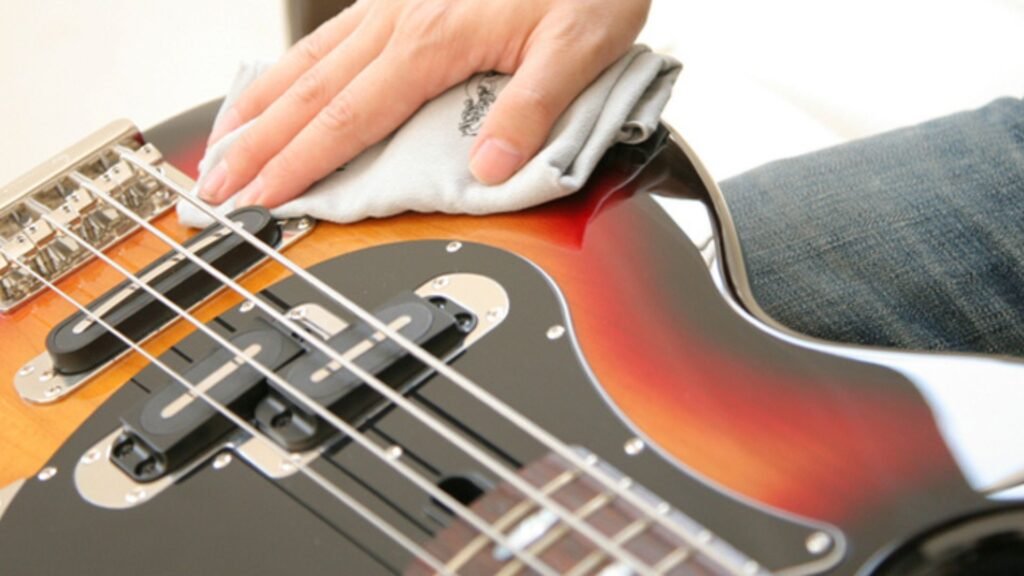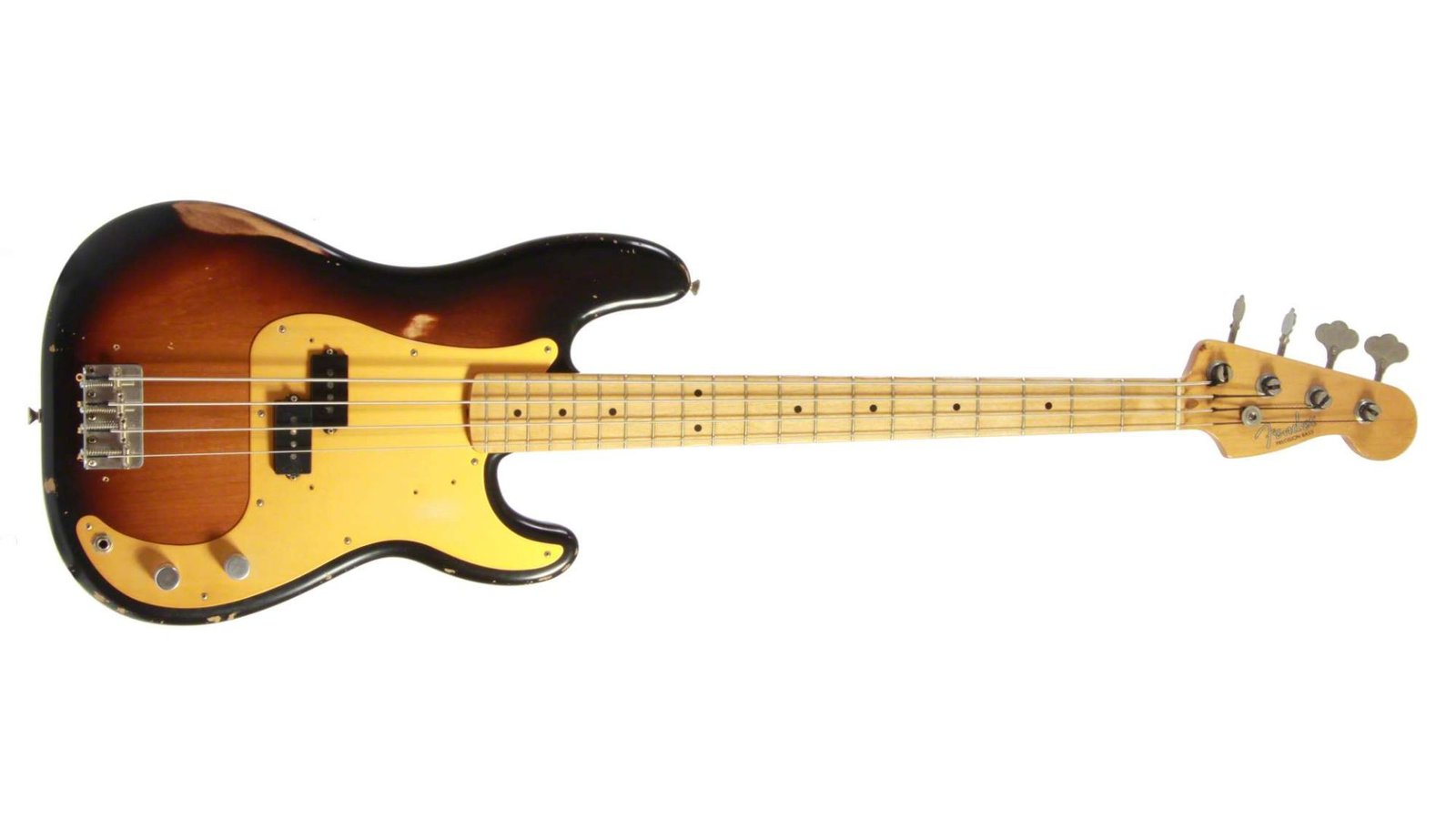Maintaining your bass guitar ensures optimal performance, longevity, and sound quality. Whether you’re a beginner or a seasoned player, proper care is essential to protect your investment. This guide covers everything you need to know to keep your bass guitar in top condition.

Clean Your Bass Guitar Regularly
Dirt and grime can affect your guitar’s appearance and playability. Regular cleaning keeps your instrument looking and sounding great.
Cleaning Tips:
- Wipe the Body: Use a microfiber cloth to remove fingerprints and dust after each use. Avoid abrasive materials.
- Polish the Finish: Use a guitar-specific polish occasionally to restore the shine.
- Clean the Fretboard: For rosewood or ebony fretboards, use a small amount of lemon oil to clean and condition. Avoid excessive oiling.
Change Strings Periodically
Old strings lose their tone and can damage your frets. Replacing them regularly ensures a crisp, bright sound.
String Care Tips:
- Wipe Strings After Playing: Use a cloth to remove sweat and oils that can corrode strings.
- Replace Strings When Needed: Change them every 3–4 months, or sooner if you play frequently.
- Use the Right Strings: Choose strings that match your playing style and preferences.
Properly Store Your Bass Guitar
Improper storage can lead to warping, cracks, or other damage. Protect your bass by storing it in the right environment.
Storage Tips:
- Use a Case or Gig Bag: Always store your bass in a protective case when not in use. Hard cases offer the best protection.
- Avoid Extreme Temperatures: Keep your bass away from direct sunlight, heat, and humidity. Sudden changes can cause wood to expand or contract.
- Use a Guitar Stand: If you prefer to display your bass, use a sturdy stand to prevent falls.
Tune Your Instrument Regularly
A well-tuned bass ensures the best sound and prevents unnecessary tension on the neck.
Tuning Tips:
- Check Tuning Before Playing: Use a digital tuner or tuning app for accuracy.
- Watch for Intonation Issues: If notes sound off despite proper tuning, adjust the intonation or consult a professional.
Maintain the Hardware
The hardware on your bass, including the bridge, tuning pegs, and pickups, requires occasional attention.
Hardware Maintenance Tips:
- Clean Metal Parts: Use a soft cloth to clean the bridge and tuning pegs. For stubborn grime, use a mild metal cleaner.
- Adjust the Action: If the strings feel too high or low, adjust the truss rod or bridge to improve playability.
- Check Pickups: Ensure the pickups are clean and positioned correctly for balanced sound output.
Protect the Neck and Frets
The neck and frets are critical for playability and tone. Regular maintenance prevents wear and tear.
Neck and Fret Tips:
- Inspect the Neck: Check for warping or bends and adjust the truss rod if needed.
- Polish the Frets: Use a fret polishing kit to remove dirt and restore shine.
- Avoid Excessive Pressure: Don’t press too hard on the strings while playing to reduce fret wear.
Regularly Check Electronics
For electric bass guitars, keeping the electronics in good shape ensures reliable performance.
Electronics Tips:
- Check Connections: Ensure all cables and input jacks are secure.
- Test the Volume and Tone Knobs: Rotate them to check for crackling or resistance, which may indicate wear.
- Replace Batteries: For active pickups, replace batteries every 6–12 months or as needed.
Seek Professional Maintenance
While you can handle most tasks at home, professional servicing ensures your bass stays in peak condition.
When to Consult a Professional:
- Annual Setup: A professional setup includes adjusting the action, intonation, and neck for optimal playability.
- Complex Repairs: For issues like fret leveling or electronics replacement, visit a luthier or technician.
Conclusion
Caring for your bass guitar not only preserves its value but also enhances your playing experience. By cleaning, storing, and maintaining your instrument regularly, you ensure it remains in excellent condition for years to come. Remember, a well-maintained bass is a joy to play and an essential tool for creating great music.











